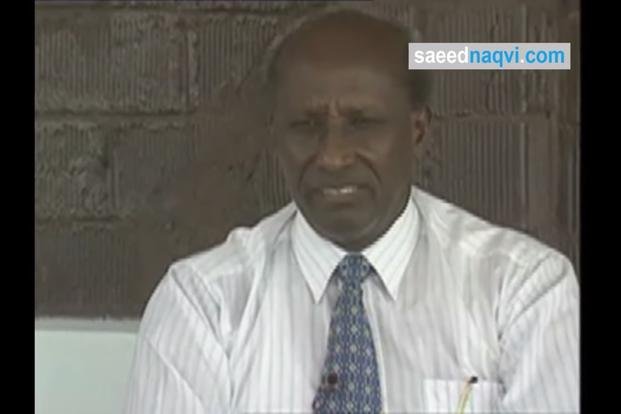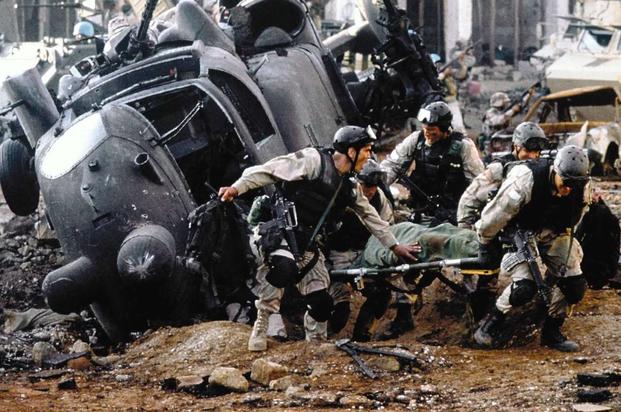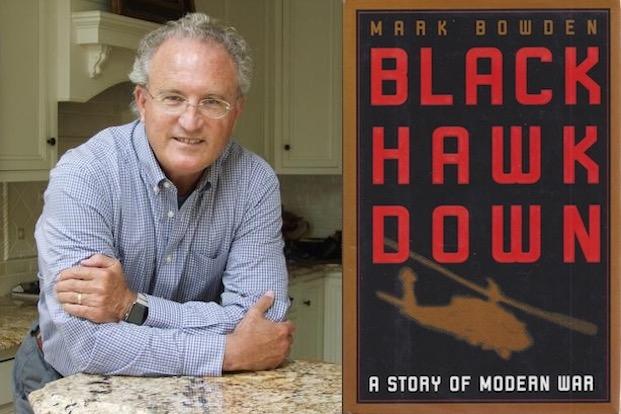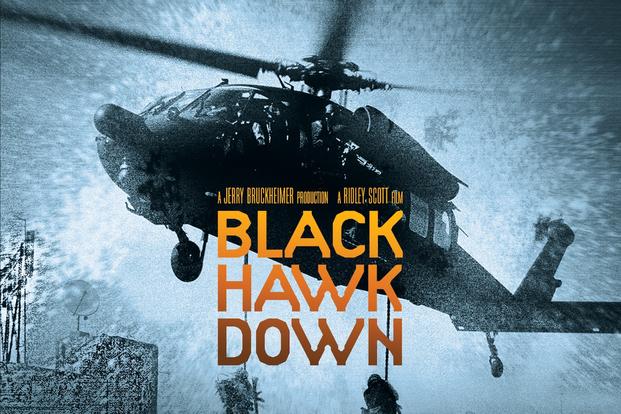A Life Aloft
Well-Known Member
The classic war movie about the 1993 Battle of Mogadishu has just been remastered for 4K and released on Digital and 4K UHD disc. We spoke with both Eric Bana, the actor who plays Hoot, and Mark Bowden, the journalist who wrote the original book, and learned a few things about the movie and the real-life events that inspired it.
1. America didn't see it coming.

In 1993, the Soviet Union had collapsed, and the United States won the first Gulf War in a cakewalk. The country (rightfully) saw itself as the world's last great military power, and there was a sense of invulnerability that was shattered by the events in Mogadishu.
2. Mohamed Farrah Aidid wasn't on our radar.

Aidid was strictly a local warlord, a guy with zero international ambitions. He was wreaking chaos in Somalia, and removing him was supposed to be a simple operation. Imagine this: What if American troops were sent into Los Angeles at the height of the crack epidemic to remove Freeway Rick Ross and were pinned down in the crossfire of a Bloods vs. Crips gang war?
Aidid was just a local thug who managed to find the vulnerability in the vaunted Sikorsky UH-60 Black Hawk helicopter.
3. "Black Hawk Down" was the first war movie released after 9/11.

It was also the last war movie made before the start of the War on Terror. As Eric Bana pointed out in our interview, the military gave the filmmakers access to gear in a way that would have been impossible just a few months later.
As Americans were processing the fallout of an attack on American soil, "Black Hawk Down" showed U.S. troops regrouping and showing strength and heroism after another surprise attack.
4. Eric Bana helped write Hoot's climactic speech.

As Hoot prepares to head back into battle near the end of the movie, he tells Eversmann (played by Josh Hartnett) just why he chose to serve.
Bana told us that the script originally had him say that he did it because of "duty, honor, and love of country" but, after weeks of filming, that line no longer felt right to him. With encouragement from director Ridley Scott and screenwriter Ken Nolan, Bana tried out the version of the speech that we've all come to love, the one that made this movie a classic.
5. Mark Bowden almost didn't get to tell the story of "Black Hawk Down."

Bowden was a reporter at the Philadelphia Inquirer when he started researching the story on his own dime. He only got to devote the time to finish it because The New York Times made him a job offer, and Bowden negotiated the freedom to do the story as a condition of staying with the Inquirer.
Even then, almost every publisher in New York turned him down, and he got only a small advance when Grove/Atlantic decided to take a chance on the book. Once the newspaper started running his articles, readers were electrified, movie producer Jerry Bruckheimer bought the film rights, and the book became a huge best-seller.
"I don't think people had been paying close attention to what was going on in Somalia. It had created a lot of news when Marines first landed there in December of 1992. In fact, there were CNN cameramen on the beach. So, there was a lot of attention focused on the humanitarian mission, which was pronounced and, in fact, was successful fairly quickly. After that, I don't think many people were aware -- I certainly wasn't -- of how that mission had shifted to support U.N. efforts to create a new government in Mogadishu. No one was ready, including the White House, for the kind of pitched battle that happened on October 3rd and 4th.
A second thing I would say is that 1993 was a certain high watermark for people's impression of the impregnability or the invincibility of the American military. The Persian Gulf War had been accomplished so quickly and with so few casualties that most Americans were convinced that our military was so powerful and so effective that it really couldn't be successfully contested. This is also coming on the heels of the collapse of the Soviet Union, with the recognition of the United States being the sole military power of its size and strength in the world. So, it was a very heady period for people's perception of the United States military.
Number one, no one was expecting the kind of fighting that took place in Mogadishu. Secondly, it came as a double surprise, given that the Somalis were essentially just mobs of armed militia against the vaunted U.S. military. So, the images of dead American soldiers being dragged through the streets [were] a tremendous shock.
I was thinking about Mohamed Farrah Aidid in comparison to Osama Bin Laden. I don't think very many people were paying attention, but bin Laden had been reported on consistently for five, maybe even 10 years before 9/11. Was Aidid a name that people who were paying attention would have known before this attack took place or was he a new character on our radar?
Completely new. He was really only known in Somalia, in Mogadishu, which was a place that was so obscure. I doubt very many Americans could have found it on a map. Certainly Aidid, unlike Bin Laden, had never declared war on the United States of America and had never been linked to any international terrorism. He was a local figure in Somalia, primarily in Mogadishu, who was the head of one of the more powerful of the local clans. Other than people who were working in country, his was not a name that anyone would have recognized."


 www.military.com
www.military.com
1. America didn't see it coming.

In 1993, the Soviet Union had collapsed, and the United States won the first Gulf War in a cakewalk. The country (rightfully) saw itself as the world's last great military power, and there was a sense of invulnerability that was shattered by the events in Mogadishu.
2. Mohamed Farrah Aidid wasn't on our radar.

Aidid was strictly a local warlord, a guy with zero international ambitions. He was wreaking chaos in Somalia, and removing him was supposed to be a simple operation. Imagine this: What if American troops were sent into Los Angeles at the height of the crack epidemic to remove Freeway Rick Ross and were pinned down in the crossfire of a Bloods vs. Crips gang war?
Aidid was just a local thug who managed to find the vulnerability in the vaunted Sikorsky UH-60 Black Hawk helicopter.
3. "Black Hawk Down" was the first war movie released after 9/11.

It was also the last war movie made before the start of the War on Terror. As Eric Bana pointed out in our interview, the military gave the filmmakers access to gear in a way that would have been impossible just a few months later.
As Americans were processing the fallout of an attack on American soil, "Black Hawk Down" showed U.S. troops regrouping and showing strength and heroism after another surprise attack.
4. Eric Bana helped write Hoot's climactic speech.

As Hoot prepares to head back into battle near the end of the movie, he tells Eversmann (played by Josh Hartnett) just why he chose to serve.
Bana told us that the script originally had him say that he did it because of "duty, honor, and love of country" but, after weeks of filming, that line no longer felt right to him. With encouragement from director Ridley Scott and screenwriter Ken Nolan, Bana tried out the version of the speech that we've all come to love, the one that made this movie a classic.
5. Mark Bowden almost didn't get to tell the story of "Black Hawk Down."

Bowden was a reporter at the Philadelphia Inquirer when he started researching the story on his own dime. He only got to devote the time to finish it because The New York Times made him a job offer, and Bowden negotiated the freedom to do the story as a condition of staying with the Inquirer.
Even then, almost every publisher in New York turned him down, and he got only a small advance when Grove/Atlantic decided to take a chance on the book. Once the newspaper started running his articles, readers were electrified, movie producer Jerry Bruckheimer bought the film rights, and the book became a huge best-seller.
"I don't think people had been paying close attention to what was going on in Somalia. It had created a lot of news when Marines first landed there in December of 1992. In fact, there were CNN cameramen on the beach. So, there was a lot of attention focused on the humanitarian mission, which was pronounced and, in fact, was successful fairly quickly. After that, I don't think many people were aware -- I certainly wasn't -- of how that mission had shifted to support U.N. efforts to create a new government in Mogadishu. No one was ready, including the White House, for the kind of pitched battle that happened on October 3rd and 4th.
A second thing I would say is that 1993 was a certain high watermark for people's impression of the impregnability or the invincibility of the American military. The Persian Gulf War had been accomplished so quickly and with so few casualties that most Americans were convinced that our military was so powerful and so effective that it really couldn't be successfully contested. This is also coming on the heels of the collapse of the Soviet Union, with the recognition of the United States being the sole military power of its size and strength in the world. So, it was a very heady period for people's perception of the United States military.
Number one, no one was expecting the kind of fighting that took place in Mogadishu. Secondly, it came as a double surprise, given that the Somalis were essentially just mobs of armed militia against the vaunted U.S. military. So, the images of dead American soldiers being dragged through the streets [were] a tremendous shock.
I was thinking about Mohamed Farrah Aidid in comparison to Osama Bin Laden. I don't think very many people were paying attention, but bin Laden had been reported on consistently for five, maybe even 10 years before 9/11. Was Aidid a name that people who were paying attention would have known before this attack took place or was he a new character on our radar?
Completely new. He was really only known in Somalia, in Mogadishu, which was a place that was so obscure. I doubt very many Americans could have found it on a map. Certainly Aidid, unlike Bin Laden, had never declared war on the United States of America and had never been linked to any international terrorism. He was a local figure in Somalia, primarily in Mogadishu, who was the head of one of the more powerful of the local clans. Other than people who were working in country, his was not a name that anyone would have recognized."

5 Things You Didn’t Know About ‘Black Hawk Down’
Eric Bana, who plays Hoot in the movie, and Mark Bowden, who wrote the book that inspired the film, share some "Black Hawk Down" secrets.
Last edited:
